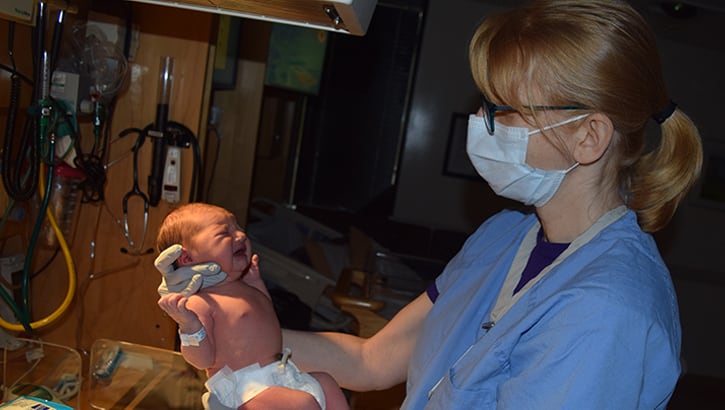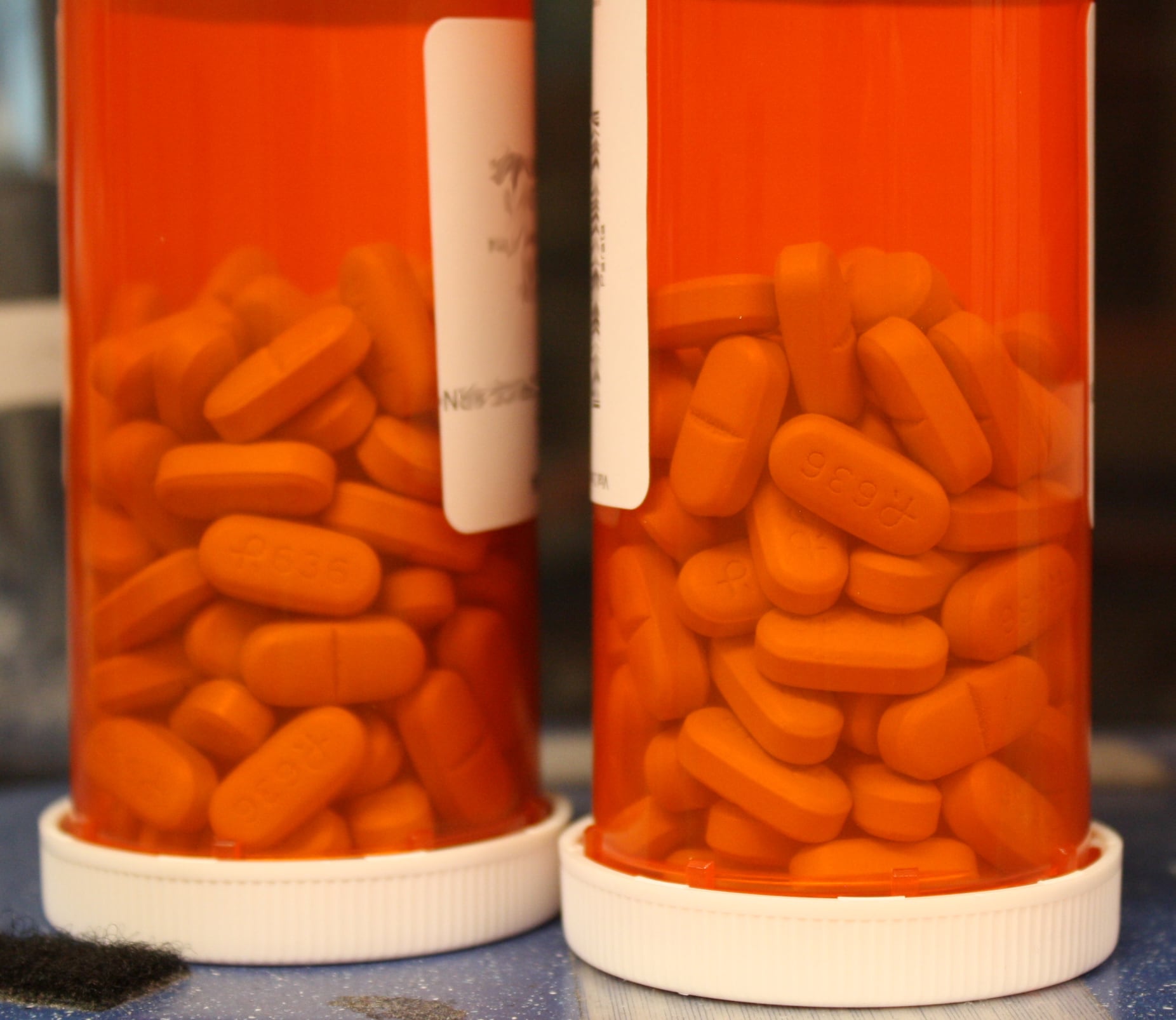More than 2,000 independent pharmacies will rejoin the Tricare retail pharmacy network, according to officials at Cigna/Express Scripts, which manages the prescription plan.
As of Oct. 24, there were 14,963 independent pharmacies that left the Tricare retail pharmacy network — primarily due to their objections about low reimbursement rates — out of 55,586 retail pharmacies in the network. The loss affects an estimated 400,000 Tricare beneficiaries. Advocates and lawmakers have expressed concern about the decrease in pharmacies and its effect on beneficiaries.
Express Scripts sent out new solicitations Dec. 1 to the 14,963 pharmacies that are no longer in the network; 2,000 have responded they will rejoin. “Other pharmacies still have several more days to respond,” said Express Scripts officials, in an email response to Military Times.
Pharmacies that accept the terms are able to rejoin the network effective Jan. 15.
As of Oct. 24, beneficiaries who continue to use pharmacies that are no longer in the Tricare retail pharmacy network will pay full price for their medications, then file for reimbursement, which is subject to the deductible as well as a higher out-of-network cost share.
“We’ve heard from about 500 beneficiaries,” said Karen Ruedisueli, director of health affairs in government relations at the Military Officers Association of America.
About one-third of those with concerns are having challenges with access to a pharmacy because of the network reduction, she said. That includes residents of long-term care facilities who will now have to pay upfront for pharmacy services and submit for reimbursement; people who use compound drugs and no longer have access to a pharmacy that does compounding; cancer patients who report it will be more difficult and time consuming to switch medications; and some rural families who will have to drive past a Walmart and/or independent pharmacy and then much farther to get to a retail pharmacy.
“This is without a doubt a cut to the Tricare pharmacy benefit that, unfortunately, disproportionately impacts those who need the pharmacy benefit most — beneficiaries with chronic conditions or disabilities and the elderly,” Ruedisueli said.
RELATED

Ruedisueli noted that a Nov. 29 Congressional Research Service report stated that the minimum number of retail network pharmacies in the Tricare pharmacy contract has been reduced from 50,000 pharmacies in the previous contract to 35,000 pharmacies. As part of the transition to the new contract, “[Defense Health Agency] approved [Express Script’s] request to downsize the retail pharmacy network in preparation for the start of the new contract,” CRS reported.
“We are already down to 41,000 with the departure of the independents,” Ruedisueli said. With the recent departure of Kroger’s 2,200 pharmacies, and possibly the pharmacies at Albertsons if the Kroger-Albertson’s merger goes through, that number could get closer to the 35,000 minimum, she said.
Tricare and Express Scripts officials have said that nearly all Tricare beneficiaries have an in-network pharmacy within a 15-minute drive of their home, even with the reduction in the number of pharmacies.
The Kroger grocery chain announced Sept. 30 that its 2,200 pharmacies in 35 states would no longer participate in the Tricare provider network, unless an agreement is reached by Dec. 31, describing the Express Scripts drug pricing model as “unsustainable” for Kroger and its customers.
Reimbursement rates have been the key issue for the independent pharmacies, too, although earlier this year, more than 7,000 independent pharmacies accepted the proposed network rates for 2023.
However, many of the community pharmacies never even received the proposed contract for the 2023 retail network, which Express Scripts sent by fax earlier this year, according to the National Community Pharmacists Association. These pharmacies therefore had no opportunity to remain in the network. Express Scripts terminated contracts early for the pharmacies participating in the 2022 network — Oct. 24. While Tricare beneficiaries received letters about the change, many pharmacies learned about the change only from their patients.
It’s not yet known how many of the nearly 13,000 remaining independent pharmacies that haven’t rejoined the Tricare network will do so. While the new solicitations were sent out Dec. 1, “our members report that the contracts are virtually identical in terms of reimbursements to the ones sent out this summer, which would likely reimburse well below cost for many prescription medications,” wrote six pharmacy associations in a Dec. 6 letter to Amy Bricker, president of Express Scripts, and David Cordani, chairman and CEO of Cigna Corporation.
Those associations are: Alliance for Pharmacy Compounding, American Pharmacists Association, National Association of Specialty Pharmacy, National Community Pharmacists Association, National Home Infusion Association and Senior Care Pharmacy Coalition.
While each pharmacy’s experience may differ, there have been general estimates of a 50% decrease in generic drug payments from the 2022 reimbursement terms to the terms for 2023, according to the National Community Pharmacists Association.
RELATED

Tricare now has just one specialty pharmacy in the network, Accredo, as of Jan. 1. Specialty medications are for chronic, complex conditions such as cancer, rheumatoid arthritis, multiple sclerosis and other diseases. The pharmacy associations said in their letter that patients have reported missing doses of medication and being denied the sterile supplies they need to administer their medications when they attempted to use Accredo.
The associations cited an example of a caregiver for his bedridden mother in a skilled nursing facility, who received a message from Cigna/Express Scripts that their independent pharmacy would no longer be in the network. “The options given for his mother to continue receiving her medications were to drive herself to the nearest Walgreens or military treatment facility and manage her medications on her own,” the association letter stated.
In addition, they wrote, “we have heard from many hospitals that they have been hesitant to discharge patients due to concerns of patients being able to access highly complex, specialty medications.”
Express Scripts officials said they appreciate the continued feedback from industry organizations. “We take any concerns related to disruptions of care seriously, and if an issue does arise, we work swiftly with the patient and their doctor to address it,” stated Express Scripts, in a response to Military Times.
Fewer than 1% of Tricare-eligible beneficiaries use specialty medicines, officials said, and many of them already fill their prescriptions through Accredo.
“Accredo is a best-in-class specialty pharmacy that supports patients living with complex health conditions through a dedicated team of specialist pharmacists, nurses that offer in-home care, social workers and dieticians,” Express Scripts officials stated. “Accredo will become the primary in-network retail specialty pharmacy for Tricare beneficiaries in January, offering beneficiaries expanded services and enhanced care while helping the Department of Defense manage the skyrocketing cost of specialty medications. …
“We have created a team to support the small group of impacted beneficiaries, and are proactively working with them and their pharmacies to transition their care,” officials stated. “Beneficiaries can contact this team at 1.877.882.3324.”
Karen has covered military families, quality of life and consumer issues for Military Times for more than 30 years, and is co-author of a chapter on media coverage of military families in the book "A Battle Plan for Supporting Military Families." She previously worked for newspapers in Guam, Norfolk, Jacksonville, Fla., and Athens, Ga.




